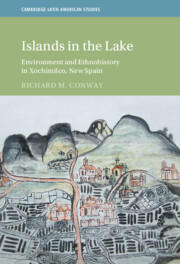
- Cited by 15
-
Cited byCrossref Citations
This Book has been cited by the following publications. This list is generated based on data provided by Crossref.
2021. Islands in the Lake. p. 84.
2021. Islands in the Lake. p. 172.
2021. Islands in the Lake. p. 380.
2021. Islands in the Lake. p. 273.
2021. Islands in the Lake. p. 344.
2021. Islands in the Lake. p. 1.
2021. Islands in the Lake. p. 387.
2021. Islands in the Lake. p. 310.
2021. Islands in the Lake. p. 225.
2021. Islands in the Lake. p. 353.
2021. Islands in the Lake. p. 128.
2021. Islands in the Lake. p. 360.
2021. Islands in the Lake. p. xi.
2021. Islands in the Lake. p. 37.
Conway, Richard M. 2021. Islands in the Lake.
- Publisher:
- Cambridge University Press
- Online publication date:
- October 2021
- Print publication year:
- 2021
- Online ISBN:
- 9781009003957




